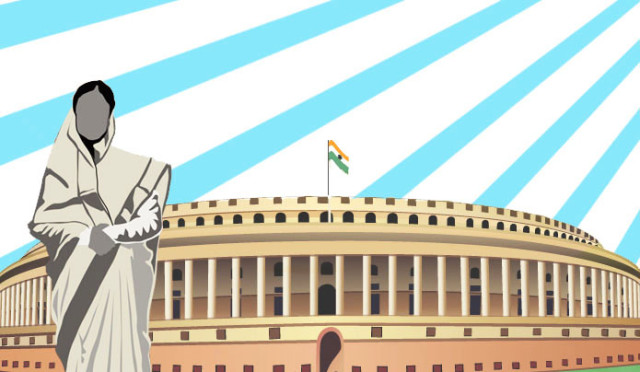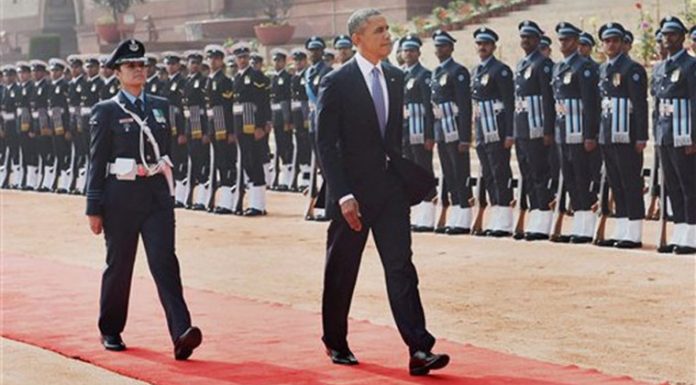The issue of women’s representation is a relevant one at a time when women in India are breaking the glass ceiling and trying to improve conditions for them in society.

Yes, of course, it’s very important to have representation for women in Parliament. They need someone to present their interests, just like other interest groups present theirs. Women have numerous issues they grapple everyday with- safety while commuting to work and back, public toilets, streetlights, financing of education for women from poor families, better healthcare facilities, rape crisis centers for rape survivors, laws that protect women and girls from discrimination and sexual violence, criminalization of marital rape etc. Societies where there is adequate attention to women and their needs, in society, are developed and have better economies and living standards too.
Question is, are we executing the task of representing women in Parliament right?
There is a bill for 33% representation of women in both Upper and Lower Houses of Parliament, and legislative assemblies of all states. This bill, mooted in 1993, has been approved by the Upper House, but continues to languish in the Lok Sabha because of a logjam of opposing opinions. This bill, which seeks special representation for women to provide them a level playing field, is not acceptable by a male-dominated Lok Sabha, where most politicians think women don’t deserve equal chances as men do. This is hardly surprising, given how women are still discriminated against in a society which is still steeped in misogyny and patriarchy. Women in India have been historically disadvantaged because they are not considered as good as their male counterparts.
That’s why the Lower House MPs are reluctant to pass a bill which puts women on an equal footing and increases the chances of their demands getting fulfilled.
But this is just one side of the picture.
Let’s look at the other aspect.
What about the women already in Parliament and politics?
There are women in politics in India- powerful women. Indira Gandhi, Vijayalakshmi Pandit, Sonia Gandhi, Pratibha Patil, Jayalalitha, Mayawati, Sushma Swaraj, Anandiben Patel, Sheila Dixit, Brinda Karat, Kanimozhi Karunanidhi, Smriti Irani, Mamata Banerjee etc, to name a few. These women are powerful and well- known, with a massive fan following and political patronage.
But are they doing enough to further the interests of women in India?
No, they are not. Conditions for women still continue to be abysmal in the country. Women still get groped in public transport vehicles, on the streets and at workplaces. There are still no rape crisis centers, or funds and centers where survivors of gender violence and domestic abuse can recover and rehabilitate. There are still no public toilets for women, and maternal mortality rates still continue to be high.
These women in Parliament and politics seem concerned only with power. They have done nothing to criminalize marital rape, or implement the iconic Verma report, which came out in the wake of the 2012 Delhi gang-rape of a student, and which has various suggestions for how to make the county safer for women.
At times, these women betray a misogynist attitude themselves.
West Bengal CM Mamata Banerjee claimed that the Opposition in Bengal makes up cases of rape against women to defame her government. Sheila Dixit, when she was Delhi CM, said that the 2012 Delhi gang-rape survivor, Jyoti Singh, was a living corpse. Mayawati, when she was UP CM, claimed falsely that cases of rape in UP were less than the real statistics.
These women politicians only care about politics, staying in power and attaining wealth and influence. They have done zilch to promote women’s causes or promote and protect their interests.
Look at glaring examples of their selfishness.
The Nirbhaya fund for survivors of gender violence continues to lie unused.
The budget for the Ministry for Women and Child Development has been slashed by more than half. The funding for the promised rape crisis centers was brought down from more than 300 crores to just 18 crores. And not one center has been built yet.
While the 33% reservations Bill continues to be stuck in a limbo, women already in politics, and wielding considerable influence, must prove themselves concerned about bringing out reforms for women.
They must talk to women Organizations and other such groups and represent their problems and interests in Parliament. They must address the major issues women in India face and improve conditions for them to thrive and contribute to growth and development.





























